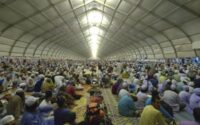Hospitalized Cage: Can Hospitals Detain Patients over Unsettled Bills?
This article has been written by Bhavya Verma of JEMTEC, School of Law, Greater Noida and has been curated by Yashasvi Kanodia of NMIMS’ Kirit P. Mehta School of Law, Mumbai.
Under Section 340 of the Indian Penal Code, 1860, no person can be wrongfully confined without lawful jurisdiction and every person has the Fundamental Right to life and personal liberty enshrined under Article 21 of the Constitution of India. Once proved that a person has been unlawfully confined, the burden of proof shifts to the accused party to show and justify that confinement was not unlawful.
Detaining patients in the hospitals due to unpaid bills will infringe their Fundamental Right of life and personal liberty and will amount to wrongful confinement under Section 340 of the Indian Penal Code, 1860. Recently, a 60 year old man was tied and detained to a hospital bed in Madhya Pradesh due to non-payment of Rs. 11,200 due to the hospital. The video got viral on the internet and drew the attention of people following which the administration suspended the licence of the hospital.
In Devesh Singh Chauhan v. State & Ors., the Court held that merely because the hospital is giving outstanding treatments to the patients, it is no ground to detain the patient and deprecated the practice.
Patients have been provided with various rights such as right to records, right to medical emergency care, right to informed consent, right to non-discrimination, right to be discharged, etc. as per the Charter of Patients’ Rights, released by the Ministry of Health and Family Welfare and prepared by National Human Rights Commission (NHRC). In the case of Consumer Education and Research Centre v. Union of India, the Court held that Article 21 read with Directive Principles guaranteed under Articles 39(e), 41 and 43 makes the right to health and medical care a Fundamental Right. Also, in the case of Paschim Banga Khet Mazdoor Samiti v. State of West Bengal, the Court made it crystal clear that the government hospitals and medical officers are duty bound to provide medical assistance to their patients and failure in doing so would violate Article 21 under the Constitution of India. The hospitals cannot refuse providing medical treatments to the patients on the ground that they are unable to pay the expenses of the treatment. Public health is also under State List under List-II under the Constitution of India.
In the case of Sanjay S Prajapati v. State of Maharashtra, the Court observed that the detention of the patients due to non-payment of the dues will amount to wrongful confinement under section 340 of the Indian Penal Code, 1860. Therefore, it is established that detaining the patient or the dead body is not only unconstitutional and unlawful but immoral, inhuman and torturous for the patient and family members. This practice by the honourable Courts in the series of judgments has been deprecated.
Nevertheless, a balance needs to be maintained between the patients who are unable to pay and thereby unlawfully detained in the hospital and the hospitals who receive threats and assaults. Proper guidelines should be enforced in order to protect the rights of the patients and the hospitals too. The current legal scenario can be used arbitrarily by the patients which makes it unjust for the hospitals and their hardworking workers. The hospital too has the right to recover timely dues for the treatments provided by them. The Court in the case of Trevor Nerves Britto v. State of Maharashtra held that some type of mechanism has to be introduced for the hospitals in order to receive the rightful dues. It is not out of place to expect such judicial activism on the part of the judiciary at this hour.


